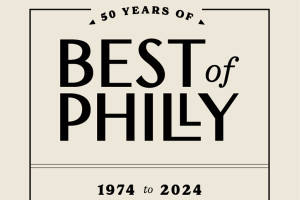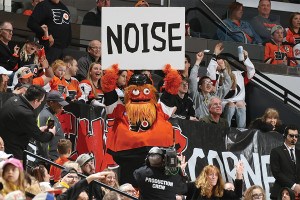Philadelphia Phillies Owners: The Phantom Five
THREE DAYS BEFORE the official start of the 2008 baseball season, the Philadelphia Phillies are treating their friends in the city chamber of commerce to a party in the ballpark’s exclusive Diamond Club. Toyota dealers, Commerce Bank execs and W.B. Mason reps load up on baked ziti at the free buffet line, sip Bud Light from frosty aluminum cans, and shake hands with the team’s big guns, like MVP Jimmy Rollins. There’s good reason for revelry — 2007 marked the Phils’ first post-season appearance in 14 years. By comparison, in that time the Flyers enjoyed 12 playoff campaigns, with eight for the Eagles and seven for the Sixers. Moments after Brett Myers threw the curveball that clinched the National League East title last September, the Phillies faithful erupted in a throaty roar of elation and relief. It wasn’t simply a celebration — it was catharsis.
No other city with teams in all four major sports has gone 25 years without a championship, and hunger for a parade is growing with each failed season. Not long ago, few would have picked the Phillies as the team most likely to deliver salvation, but its current core of young talent is cause for excitement. “The Phillies have a team that could be among the best in franchise history,” says ESPN’s Jayson Stark, who covered them for 21 years with the Philadelphia Inquirer. So why didn’t Stark, or any other baseball prognosticators, pick the Phillies to win the World Series this year? Building a champion, he says, “would take a lot of daring this team doesn’t have.”
David Montgomery, the team’s president and the face of its owners, will never be mistaken for Evel Knievel. Today, “Gentleman Dave,” as he’s known, is in the middle of the Diamond Club schmoozefest, shaking hands and smiling. Also here is chairman Bill Giles, who in 1981 assembled a group of investors to buy the Phillies. There are five conspicuous absences, though: Claire Betz, the 87-year-old who took her seat at the ownership table when her husband, head of Betz Laboratories, died; the Buck brothers — Jim, 82, Bill, 78, and Whip, 75 — founders of TDH Capital, the Delaware Valley’s first venture-capital interest; and John Middleton, 53, whose cigar company, John Middleton Inc., sold for $2.9 billion last year. They are the shadowy owners of the Phillies, and for this Phantom Five, the less interaction with the public, the better.
Here’s why: When it comes to their baseball team, the owners are as beloved as Mumia at an FOP beef-and-beer. Fans, the media, and even former employees say they’re cheap. They make bad baseball decisions. They treat the Phillies like an investment, with success evaluated quarterly, not in October. Simply put, they care more about business than winning. Chances are, if the owners appeared in the Diamond Club today, they’d get an earful about the way they run the team. And who needs that?
It’s a shame they didn’t show up, though, because they could use some lessons from their corporate buddies. You see, the conventional wisdom about the Phillies owners is wrong. The source of their continuing failure isn’t that the baseball team is run too much like a business — it’s the reverse.
In the Phillies boardroom, the mantra isn’t “You’re fired!” — it’s “We’ll get ’em next year, fellas.” “Play it safe” has replaced “Play ball!” as the rallying cry. The Phillies’ front office is a place where jobs last forever, everyone’s chummy, and no one is held accountable, starting with the owners themselves, who refuse to talk to the media or to accept responsibility for failing to bring home a single championship during their 26-year reign. At best, they’re cowardly. What’s more, they’re violating the civic pact you make when you buy a professional baseball team, and the quasi-public trust you create when you ask the city and state for $260 million in funding to build your new ballpark.


